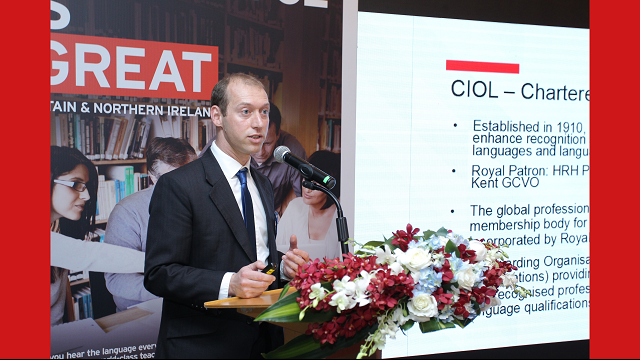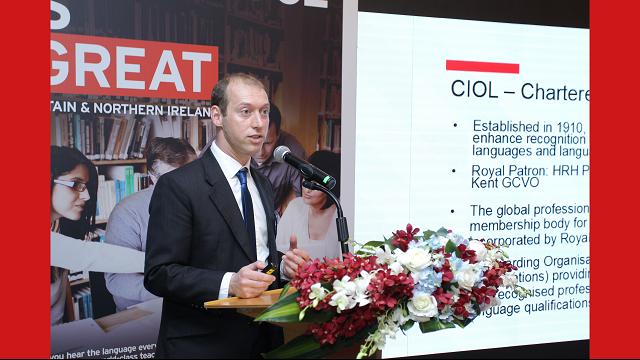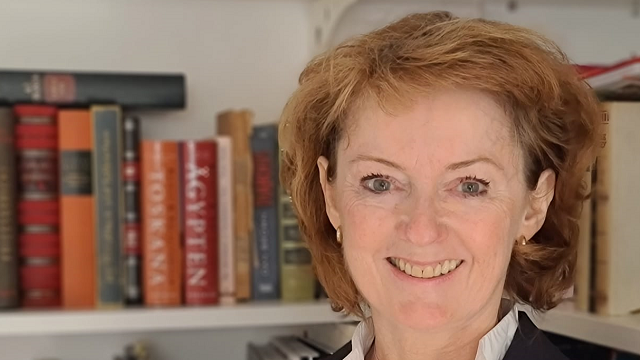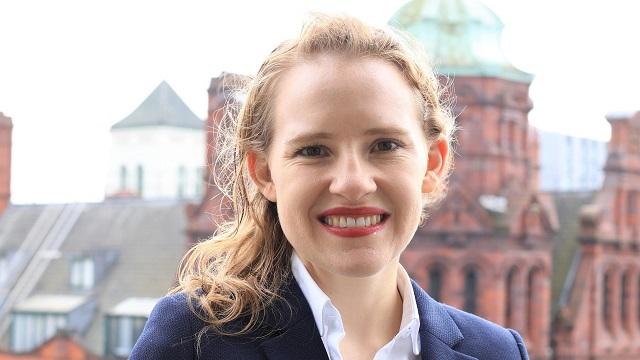-
QUALIFICATIONS
- For Linguists Worldwide
- For UK Public Services
- Preparation
- Policies & Regulation
-
MEMBERSHIP
- Join CIOL
- Membership grades
- NEW for Language Lovers
- Chartered Linguist
- Already a member?
- Professional conduct
- Business & Corporate Partners
-
ASSESSMENTS
- For Second Language Speakers
- English as a Second Language
-
EVENTS & TRAINING
- CPD, Webinars & Training
- CIOL Conference Season 2025
- Events & Networks
- CIOL Mentoring
-
NEWS & VOICES
- News & Voices
- CIOL eNews
- CIOL Awards
- The Linguist
- Jobs & Ads
-
RESOURCES
- For Translators & Interpreters
- For Universities & Students
- Standards & Norms
- CIOL & AI
- All Party Parliamentary Group
- In the UK
- UK Public Services
- Find-a-Linguist
Tales from a fifty-year career as a linguist

By John Franks
We never expect to eat anything when we’re interpreting at the dinner table. We might be able to take a sip from our glass between breaths, but our food will just sit there and get cold. If you’ve been around a while, I’m not telling you anything you don’t already know, but humour me, please, for a moment and read on. As the diners get merrier, we, of course, will stay steadfastly sober. It’s not just professional rigour; we need to be clear and sharp when, around cognac time, the directeur général decides to tell his favourite joke and the funny competition kicks off. We managed to bluff our way through the menu, (sanquette), hardly breaking sweat, and now it’s time to stiffen the sinews for the finale.
Cultural references, tastes and tolerance levels, the social mix around the table, the atmosphere, politics and personal interactions are all on display beneath the sign marked ‘handle with care’. We know how to deal with offensive remarks, unintentional or deliberate, and act according to our lights. But comedy club is where interpreters go to die. So, in my capacity as a survivor of countless convivial conflabs, I feel duty-bound to risk honour and reputation by sharing my very own personal work-around. ‘Il y a prescription’, (*) after all.
If the humour works without much adjustment, then the party can be treated to the unexpurgated version and, with luck, reward us with laughter. If the inevitable riposte turns out to be a subtle play on words, a blank stare won’t do. For that matter, neither will a convoluted explanation.
Now begins the performance. We’re on stage and the audience must not suspect that we’ve forgotten our lines. Accuracy is not required; that part is over. It’s time for art and trickery. So, invention and its mother have left me with a head crammed with hilarious nonsense in several languages and I can pull an anecdote out of my hat at the drop of, well, a hat. Replace one witticism with another. Laughter ensues. Job done.
There is danger in this of course. We may not be the only ones around the table with knowledge of the languages involved and the other side will often have their own interpreter. So, we must be bold and nimble. We are not just interpreters; our skills as cultural advisers, event organisers, tourist guides and shock-absorbers will also come in handy when faced with a situation. Sometimes, we have to take the initiative and bounce the company to a safer place. Safe, that is, for all of us. The following morning, the evening’s entertainment will get a favourable mention, we chalk up another satisfied customer and move on.
I remember a time when a school friend asked me why I was bothering to learn French. We were still at junior school, so couldn’t have been much older than twelve. ‘Everyone speaks English,’ he mocked. I let it go without comment. We were factory fodder, following our parents, but a correspondence course with the then Institute of Linguists, not yet chartered, led to associate membership and recognition. By then, we were in the Common Market, employers were casting around for linguists, and my school friend become work colleague discovered for himself just how wrong he was.
Several careers later, all of an international flavour, I became one of those employers casting around for good, competent people and know well the tedium of sifting through CVs, short-listing and interviewing. Genuine competence in a second or third language is hard to find, (chancers write good fiction), and the rare candidate whose linguistic claims are actually true does not wait long for a job offer. Students and parents, please take note.
(*) – time limit on proceedings.
John Franks MCIL is a translator and interpreter based in Paris. He specialises in politics, law, international police cooperation, security matters and human rights. As well as French, he has a working knowledge of German and Arabic.
Views expressed on CIOL Voices are those of the writer and may not represent those of the wider membership or CIOL.
More
The Chartered Institute of Linguists (CIOL), Incorporated by Royal Charter, Registered in England and Wales Number RC 000808 and the IoL Educational Trust (IoLET), trading as CIOL Qualifications, Company limited by Guarantee, Registered in England and Wales Number 04297497 and Registered Charity Number 1090263. CIOL is a not-for-profit organisation.








